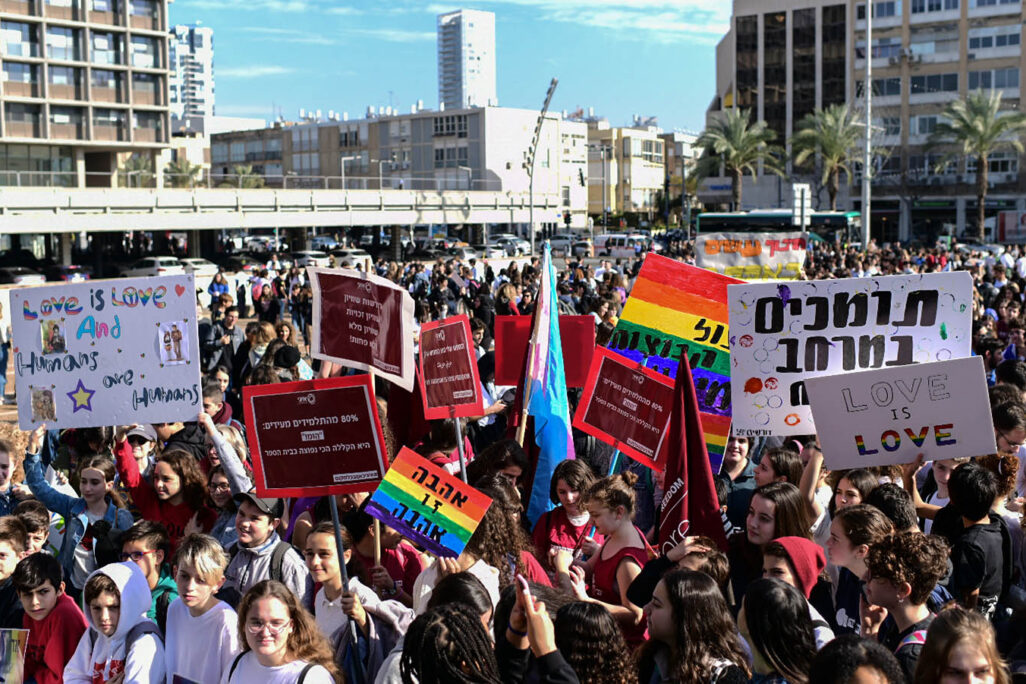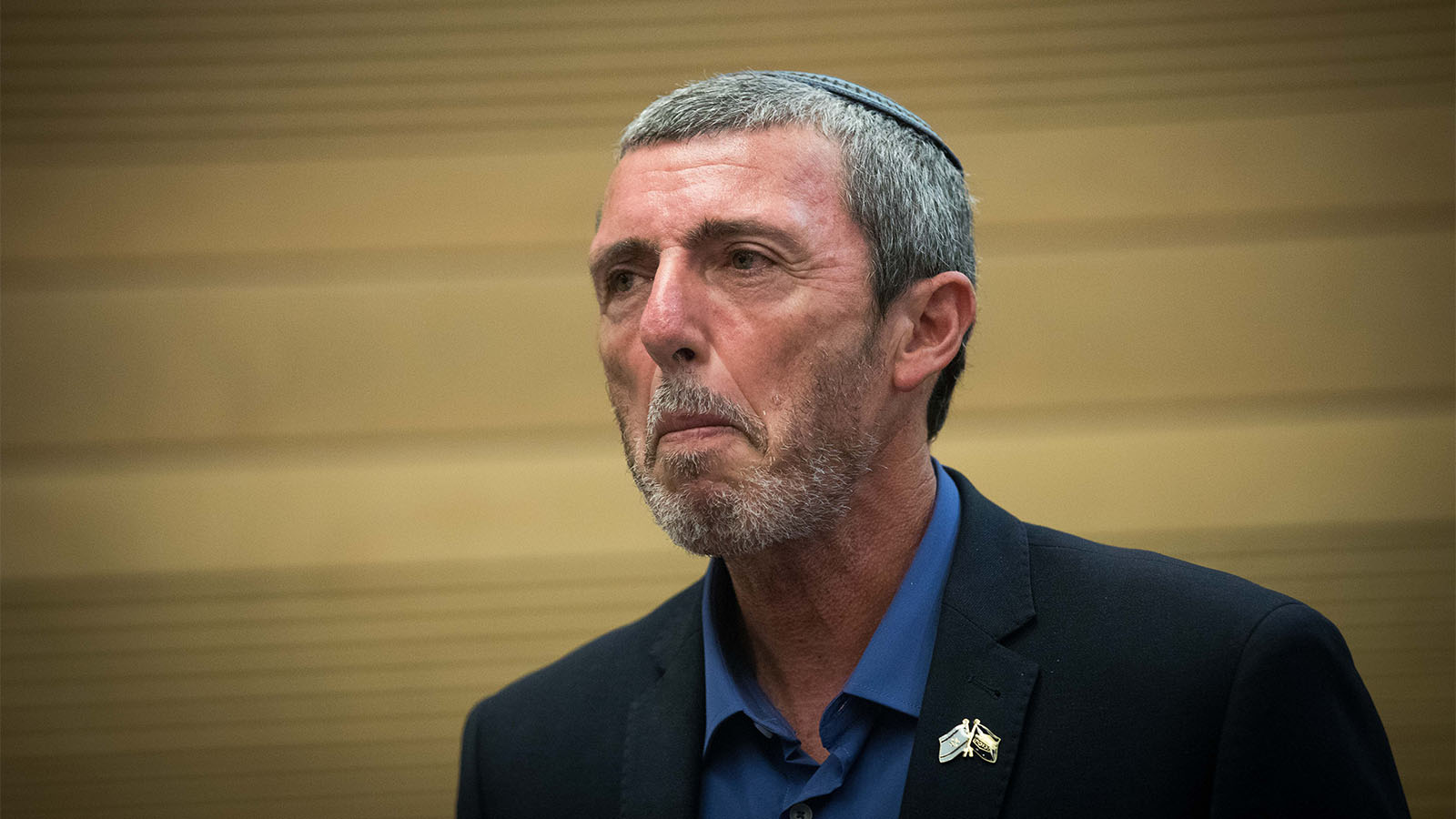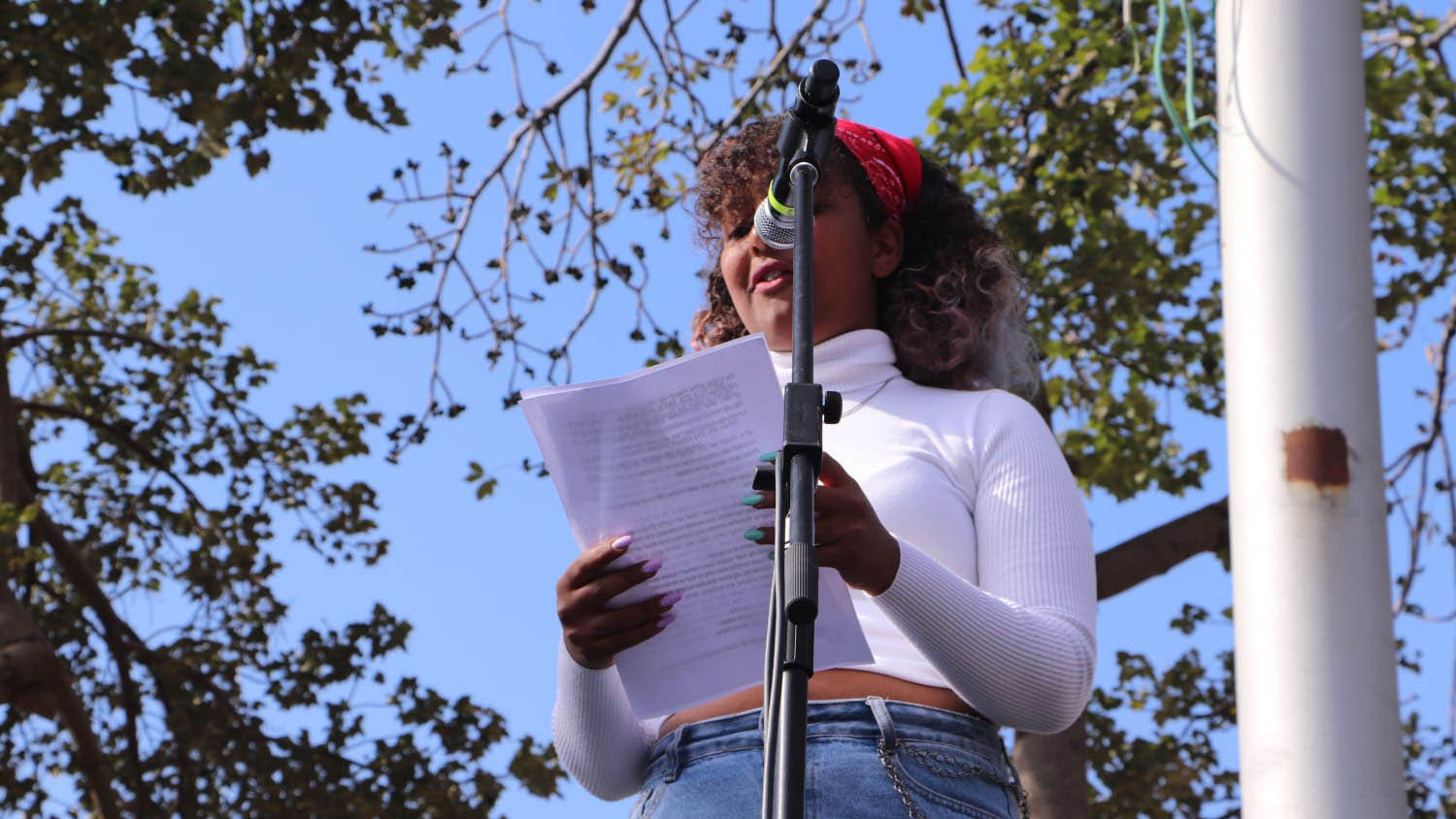
In an interview with Israeli newspaper Yediot Aharonot two weeks ago, Education Minister Rabbi Rafi Peretz said that he was confident that none of his children would come out of the closet as an LGBT identity because "thank God, my children grew up naturally and in good health. They are establishing their homes according to Jewish values. So I don't worry about what might happen." The news of the sitting Minister of Education making casually homophobic remarks to the press drew condemnation from politicians, teachers' unions and LGBT groups, and most influentially – from the students participating in the education system. A student-led rally in Tel Aviv last week drew over a thousand students carrying banners with statements such as "Homophobia Begins in the Government Halls."

Peretz, chair of the right-wing HaBayit HaYehudi party, is a controversial figure. He invited the extremist anti-Arab party Otzma Yehudit to run with HaBayit HaYehudi in the upcoming elections, although he and his party eventually joined the right-wing coalition Yemina and reneged on the agreement with Otzma Yehudit. He was a combat helicopter pilot and later on became the chief rabbi of the IDF. He also held a few educational positions before entering politics. Peretz has a history of homophobic remarks, having said in the summer that he believes in the ability of conversion therapy to change a person's sexual orientation.
The problem is much wider than him and homophobia isn't the only problem facing Israeli society. We as youth need to see the problems and fix them
Many members of Knesset issued statements, including Yael German of Kachol-Lavan who wrote that "The Minister of Education does not recognize the value of equality and is damaging Israel's status as a Jewish democracy." The Israeli teachers' union said, "We denounce divisive, inciting and racist statements towards our students or their identities with horror and deep disgust. We are guided by values of equality, fellowship, respect, tolerance and acceptance and we will continue to educate toward these values. We expect the Ministry of Education and its leaders to set an example consistent with these values and act accordingly." Several municipalities and local councils called on educators in their cities to address homophobia with their students in light of the minister's remarks. A coalition of LGBT groups released a fifteen-minute lesson plan against homophobia as a tool for teachers to broach the topic with their students.
Despite these various groups' responses, many LGBT students feel that the message is clear: The person who bears direct political responsibility and authority over the educational system, in which they must participate, has chosen to throw them to the wolves. According to IGY, the Organization of Gay Youth in Israel, the news added trauma to the already-vulnerable population of LGBT youth in Israel. A representative from IGY told Davar that calls to IGY's crisis help-line have increased since Peretz's comments.
Homophobia is hardly a new presence among Israeli youth. According a survey conducted by IGY in 2016, two-thirds of LGBT students frequently hear homophobic statements at school. Half of the students reported that their teachers never intervene in homophobic situations and thirty percent of the students reported that their teachers are among those making homophobic remarks – creating the feeling among LGBT students that they cannot rely on the adults in the system to protect them, despite the mission statements of tolerance issued by many schools.
What is more, high-profile homophobic murders of young people, including the 2009 shooting that led to two deaths at the LGBT Jerusalem Youth Open House, and the 2015 stabbing of Shira Banki at the Jerusalem Pride Parade, have brought a sense of danger into spaces which were intentionally created to be safe for LGBT youth.
More influential for the youth than statements by politicians or adults was the organized response of Israeli students themselves. Last week, the student councils of high schools around Tel Aviv joined forces to host a protest in Rabin Square against the education minister's homophobic remarks and against homophobia in the education system in general. More than 1000 students showed up, sporting rainbows drawn on their cheeks and draped around their shoulders, and holding signs with statements such as "Homophobia is Terror", "Homophobia Begins in the Government Halls", "I'm a Lesbian, So What" and "I Don't Want to be Normal."

The youth activists see their fight as one piece of a broad struggle to shape the future of Israeli society. Lee-Osher Madar, 17, who spoke at the protest, told Davar that "Rafi Peretz isn't the problem. The problem is much wider than him, and homophobia isn't the only problem facing Israeli society. We as youth need to rebel, we need to see the problems and fix them." Madar said that she wants the education system to be more open and safer for all youth, and mentioned that some of her teachers have expressed racism toward Arabs.
"We cannot remain silent in the face of politicians' constant shocking remarks," the teen organizers announced in the call to protest distributed on Facebook. "We cannot remain silent in the face of the violent extremism that overwhelms Israeli public discourse. We cannot continue to stand by as our country heads toward a future of hatred and sectarianism. Sometimes the youth needs to step up to the plate and be the 'responsible adults.'"






